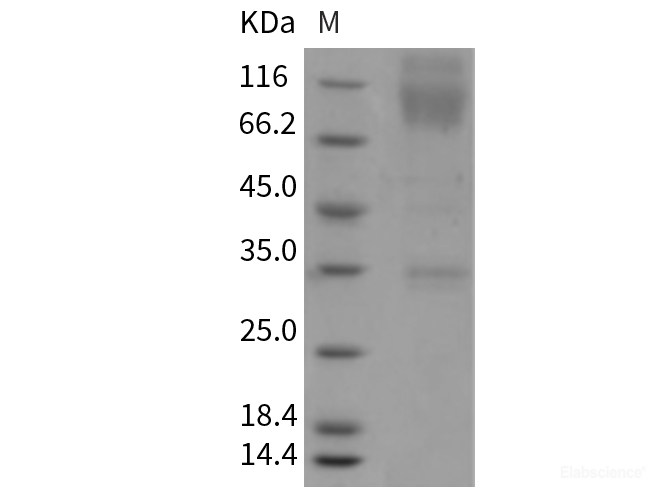Background
Tyrosine-protein phosphatase non-receptor type substrate 1, also known as SHP substrate 1, Inhibitory receptor SHPS-1, Brain Ig-like molecule with tyrosine-based activation motifs, Macrophage fusion receptor, CD172 antigen-like family member A, SIRPA and CD172a, is a single-pass type I membrane protein which contains two Ig-like C1-type (immunoglobulin-like) domains and one Ig-like V-type (immunoglobulin-like) domain. SIRPA is ubiquitously expressed. It is highly expressed in brain and detected at lower levels in heart, placenta, lung, testis, ovary, colon, liver, small intestine, prostate, spleen, kidney, skeletal muscle and pancreas. It is also detected on myeloid cells, but not T-cells. SIRPA is an immunoglobulin-like cell surface receptor for CD47. SIRPA acts as docking protein and induces translocation of PTPN6, PTPN11 and other binding partners from the cytosol to the plasma membrane. SIRPA supports adhesion of cerebellar neurons, neurite outgrowth and glial cell attachment. It may play a key role in intracellular signaling during synaptogenesis and in synaptic function. SIRPA is involved in the negative regulation of receptor tyrosine kinase-coupled cellular responses induced by cell adhesion, growth factors or insulin. It mediates negative regulation of phagocytosis, mast cell activation and dendritic cell activation.







